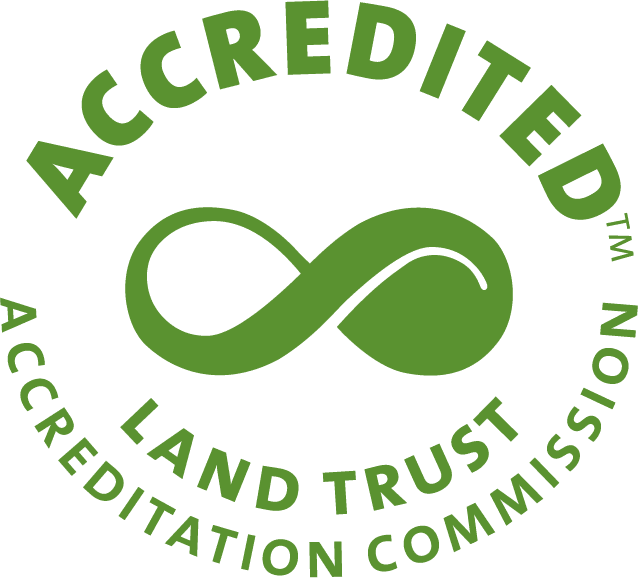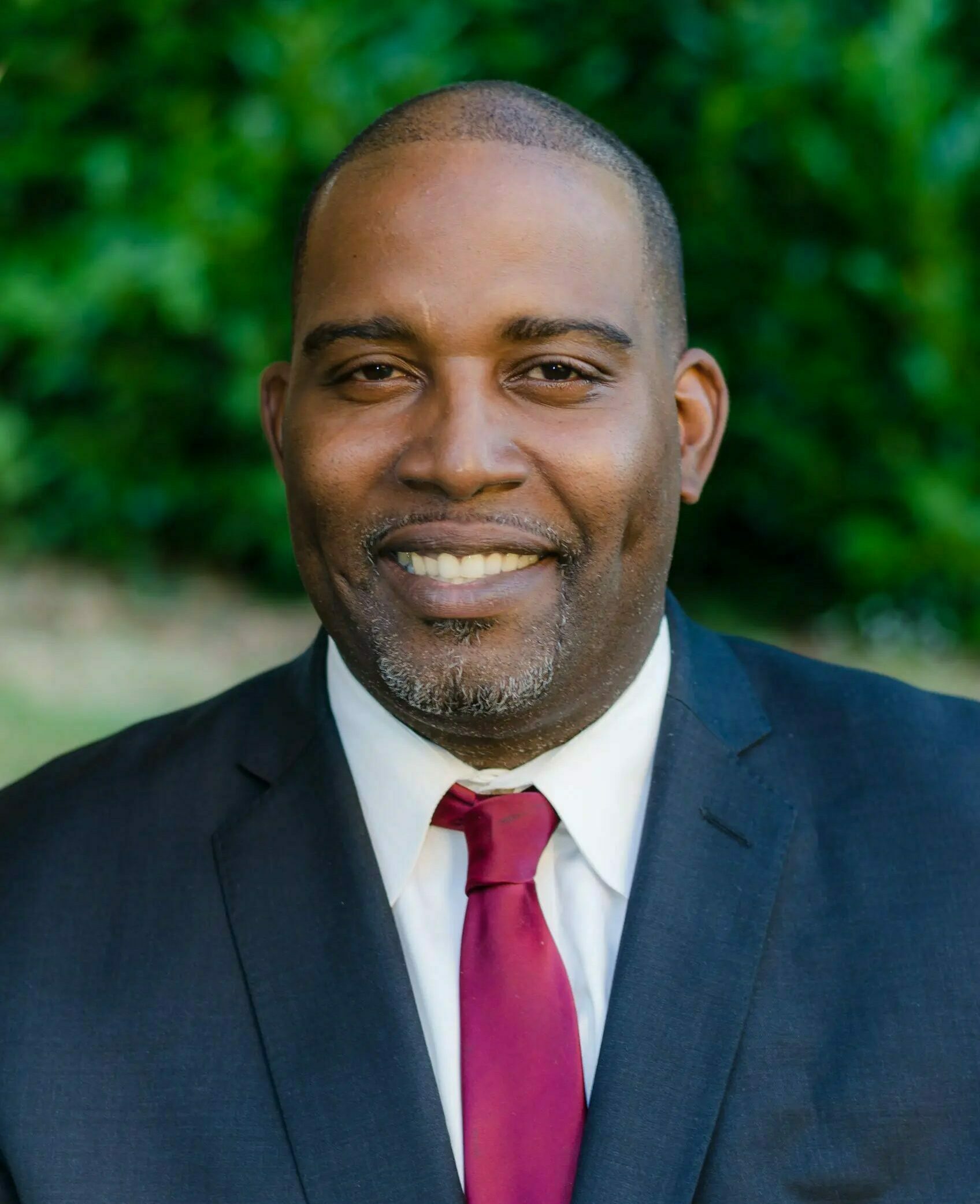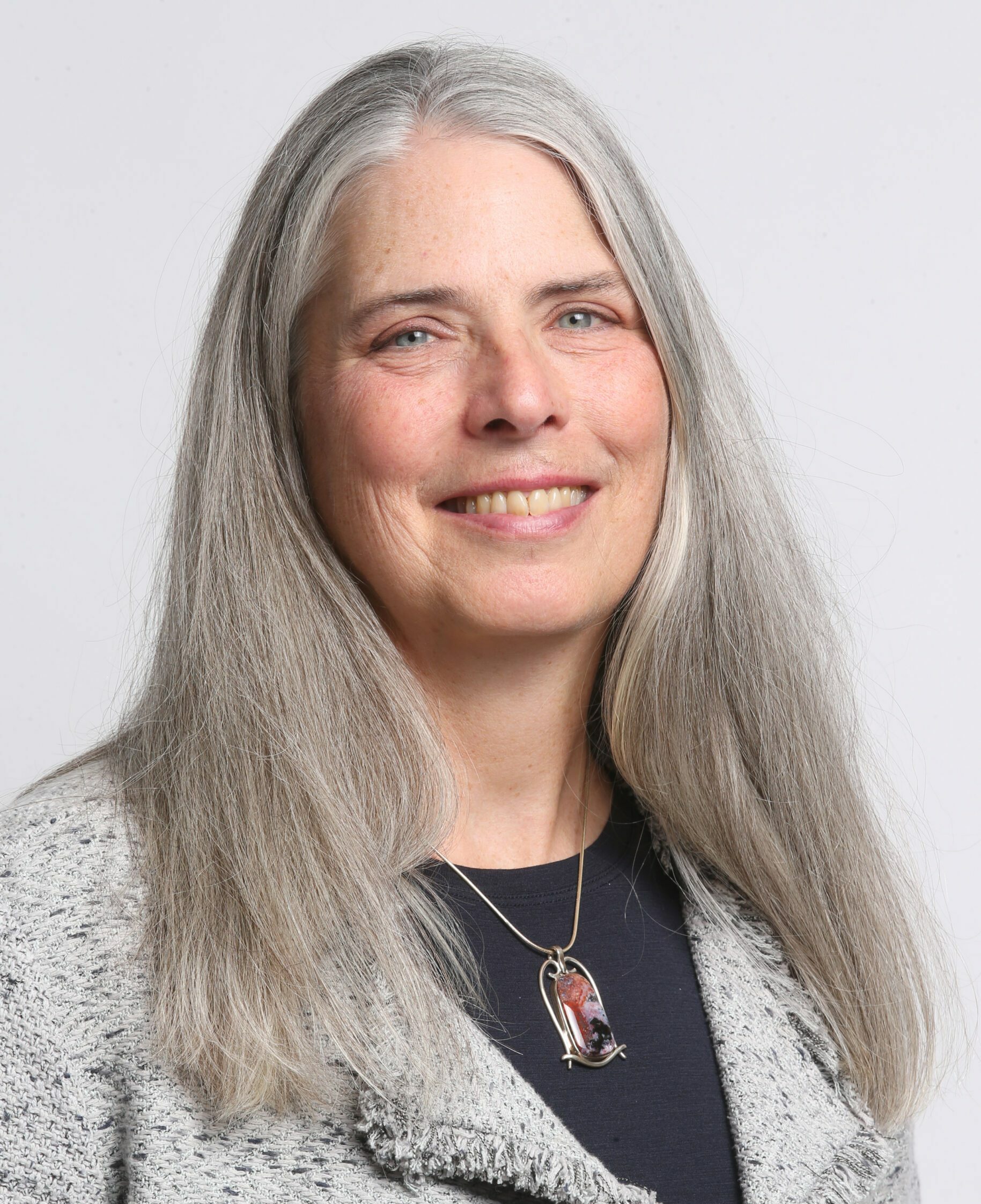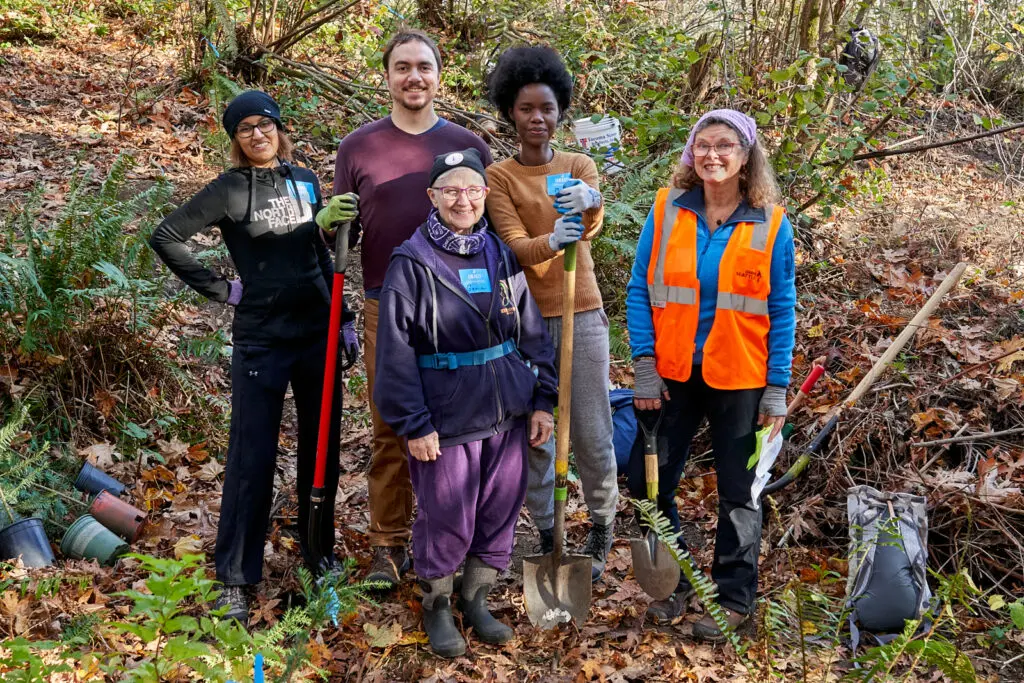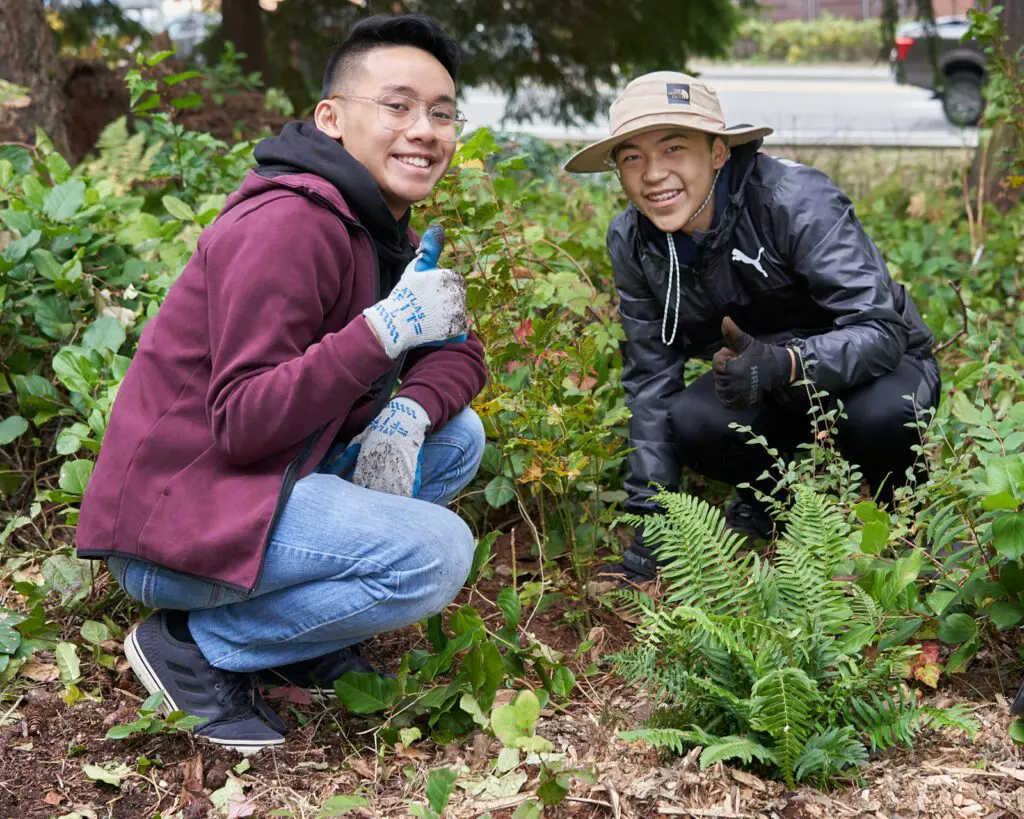2023
Annual
Report
Letter from our Board Chair and CEO
It was a year that began with reflection, and a mindset of persistence and progress. We closed out 2023 with a fresh sense of optimism and momentum. And with gratitude for the trust and engagement of our tremendous partners and supporters.

Delivering transformational change on the ground
In 2023, Forterra protected and stewarded important lands across our region. Examples of these projects range from landscape-scale efforts to address flooding in the Chehalis Basin, protecting the historic home of one of our state’s most important Black leaders, revitalizing a beloved youth camp and preserving a family farm that produces food we can all enjoy.
Partner in Employment (PIE) in King County
Our CRG grant funds the work of the Youth Restoration Training Crew, a paid training program for immigrant and refugee youth in King County. Partner in Employment seeks to provide an opportunity where BIPOC and immigrant and refugee communities can participate in the stewardship of their local parks and increase their presence in the environmental sector.
Historically, environmental training experiences, many unpaid or under-paid, are inaccessible to immigrant and refugee youth. By paying youth for their time and effort – and providing fun, educational experiences in nature and training job readiness skills – PIE is removing historical barriers and creating access to a variety of environmental careers. PIE has been a primary steward at Tukwila Park and has significantly impacted the park through long-term restoration and will continue to prioritize Tukwila Park as a site for the Youth Restoration Training Crew Program after the grant period. Partner in Employment remains dedicated to the mission of environmental stewardship and the economic stability of newly arrived refugees and immigrants in King County.
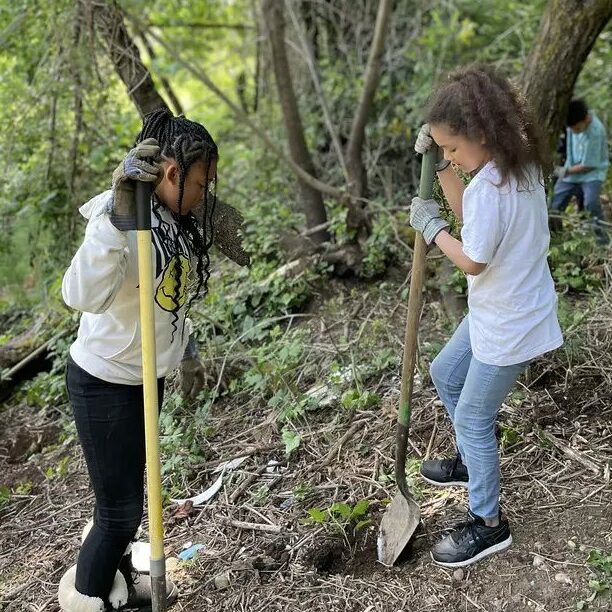
yəhaw̓ Indigenous Creatives Collective
in Seattle
This CRG grant funds the ongoing restoration in Rainier Beach that began after the organization secured a permanent home for Indigenous arts and culture in South Seattle. Earlier in the year, yəhaw̓ collective began restoration efforts by removing invasive species like blackberries and English ivy to rescue and make more room for our heritage trees and to integrate native plants across the site.
Through weekly workdays and partner programs, the organization continues its work to create a space for cross-cultural community members to integrate art, ancestral food practices, urban greenspace and land access into their daily lives. A city parcel regenerated by Indigenous hands will provide “a sanctuary space for our people and the greater community to find healing and for creativity to thrive”. yəhaw̓ Indigenous Creatives Collective will use this grant funding to build a rainwater handwashing sink and composting toilet for events, repopulate the site with native species and build raised beds to grow ancestral medicines for community gardens.
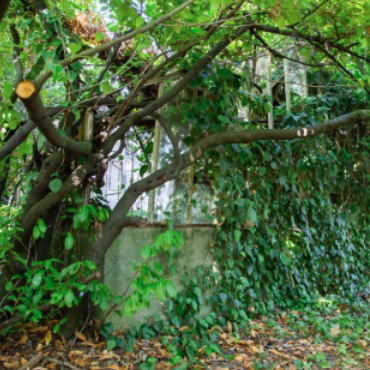
Trout Unlimited in Issaquah
This CRG grant funds the ongoing rejuvenation of Tibbetts Creek, which has faced a formidable history of habitat degradation caused by coal mining pollution and urban development. Trout Unlimited is partnering with the City of Issaquah’s Green Issaquah team to target the southwest section of Anthology greenspace that’s dominated by invasive blackberries.
With the help of volunteers, community organizations, and youth, they will clear blackberries from about 1 acre of riparian area and begin planting native trees and shrubs during several volunteer work parties from January to November 2024. This project will build on the success of a partnership of organizations who have been working to restore habitat and function in Tibbets Creek over the last 20 years. These efforts will not only enhance the habitat but also set the stage for more intricate restoration, including stream rerouting to improve habitat complexity, floodplain connectivity, and spawning areas. The project will build on previous successes, bringing Trout Unlimited closer to creating a sanctuary for native species while enriching Issaquah’s green spaces.
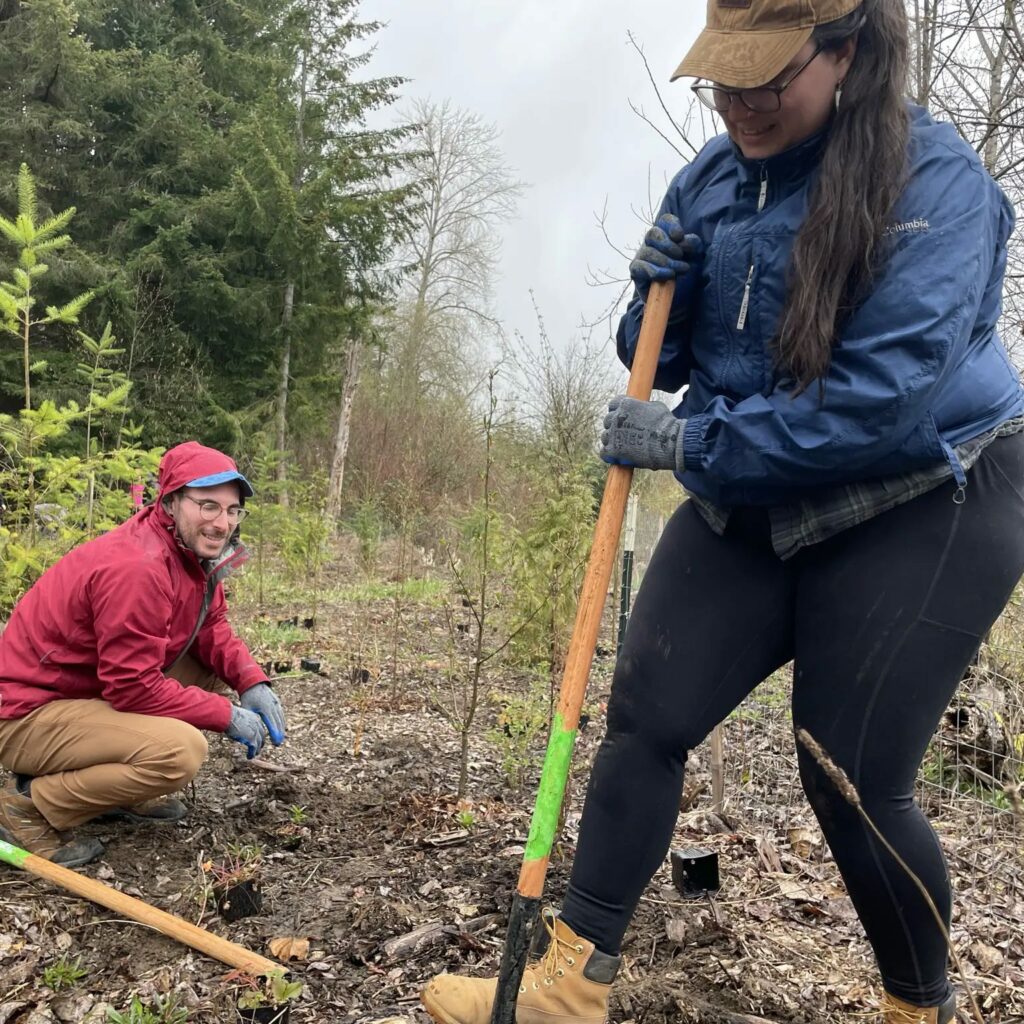
Evergreen restoration program
More than 14 years ago, Forterra launched a locally focused voluntary carbon offset program called the Evergreen Carbon Capture Program.
As data and methodologies for carbon sequestration have become refined, and the needs for local comprehensive restoration action increasingly apparent, Forterra has responded. 2023 was the final year of the Evergreen Carbon Capture Program – resulting in 2,278 trees and 11,390 tons of carbon being sequestered. Since 2010, ECC has planted more than 63,000 trees in more than 150 locations. The program transitioned into the newly established Evergreen Restoration Program, emphasizing local benefits with habitat improvement and climate resiliency that improves our region’s resilience against climate change.
Forterra began working with Snohomish Public Utility District in 2023 to develop a tree planting project providing supplemental funding grants to government, quasi-government entities, and non-profit organizations. TREE Power supports urban forestry tree planting in parks, green spaces and urban areas promoting energy efficiency by reducing heat retention of buildings, pavement, and hard surfaces.
With our longstanding track record engaging a breadth of technical information and community voices to inform our conservation strategies, Snohomish County tapped Forterra to lead a group of experts in formulating a countywide Landscape Conservation Strategy.
This work was initiated in 2023 with a meta-analysis of existing conservation plans, mapping conserved lands, and gathering partner and public feedback. Work is slated to be completed in late fall for consideration and formal adoption by the county council in December 2024
LAND AND COMMUNITY HEALTH
Meanwhile, we continued to pursue efforts to secure land important for community well-being
While pursuing numerous conservation projects that will close in 2024-2025, Forterra completed 6 conservation acquisitions in 2023 worth $4.24 million, conserving 989 acres:
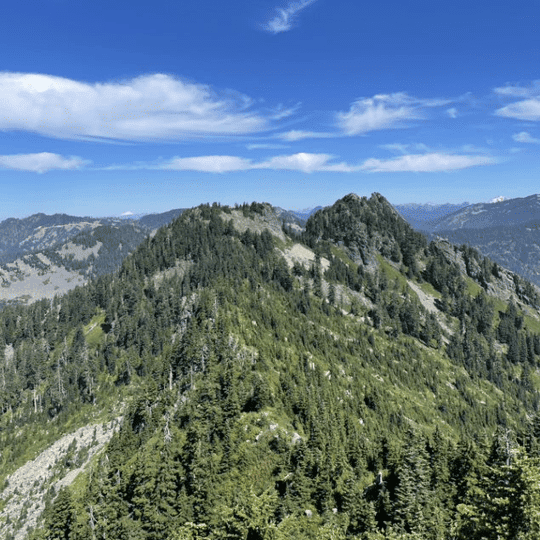
2023 marked the 25th year of Forterra’s commitment to conservation of habitat in the upper Snoqualmie Watershed. Over that time, Forterra has worked with persistence and innovation to conserve nearly 100,000 acres through more than a dozen transactions involving private landowners and multiple government agencies. One of Forterra’s proudest accomplishments for the year was ensuring an additional 600 acres – the largest remaining inholding within the Mount Si Natural Resources Conservation Area – was transferred to the Washington State Department of Natural Resources (DNR) for management. The acquisition completed spring of 2023 fulfills a long-standing, published DNR conversation plan. The property, known as Bessemer Mountain, was purchased from the Hoenig family, and funded through the state Recreation and Conservation Office’s Washington Wildlife and Recreation Program.
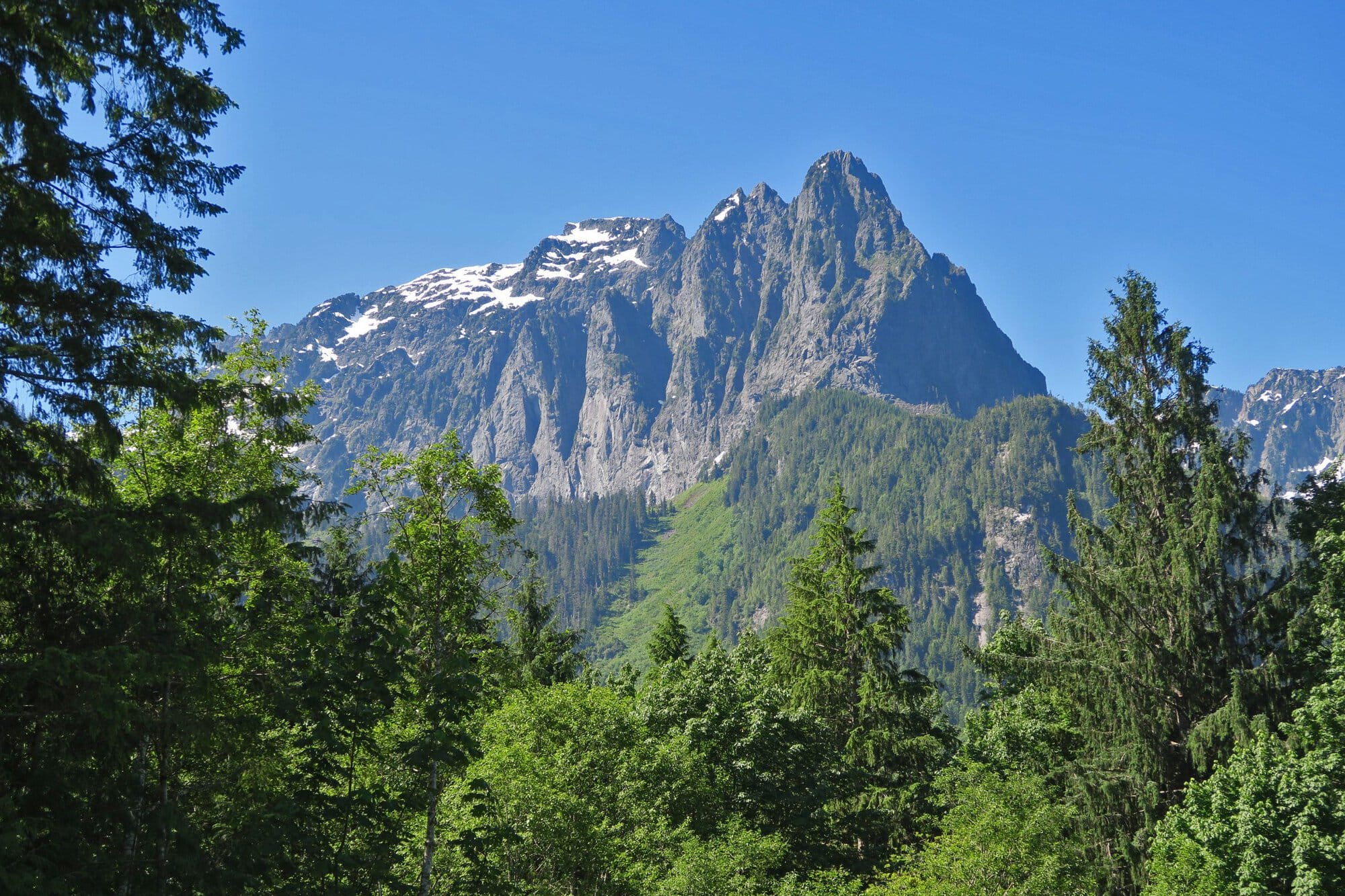
Forterra achieved a major milestone in its conservation campaign to protect the shoulders of Mount Index with the 2023 acquisition of 102 acres of forestland along the ridgeline of Mount Index. The project – funded in part by a $220,000 grant from the Snohomish County Conservation Futures program – ensures the protection of vital ecosystems and enhances recreational opportunities in the region. The Mt. Index North property consists of ecologically significant second-growth forest with pockets of mid-elevation old growth from 1,200 to 2,800 feet in elevation. This conservation acquisition builds on the successful acquisition of Forterra’s adjacent Lake Serene property. And it provides a critical connection to Mount Baker Snoqualmie National Forest. Forterra now manages hundreds of acres in the area for both ecological and recreational benefits.
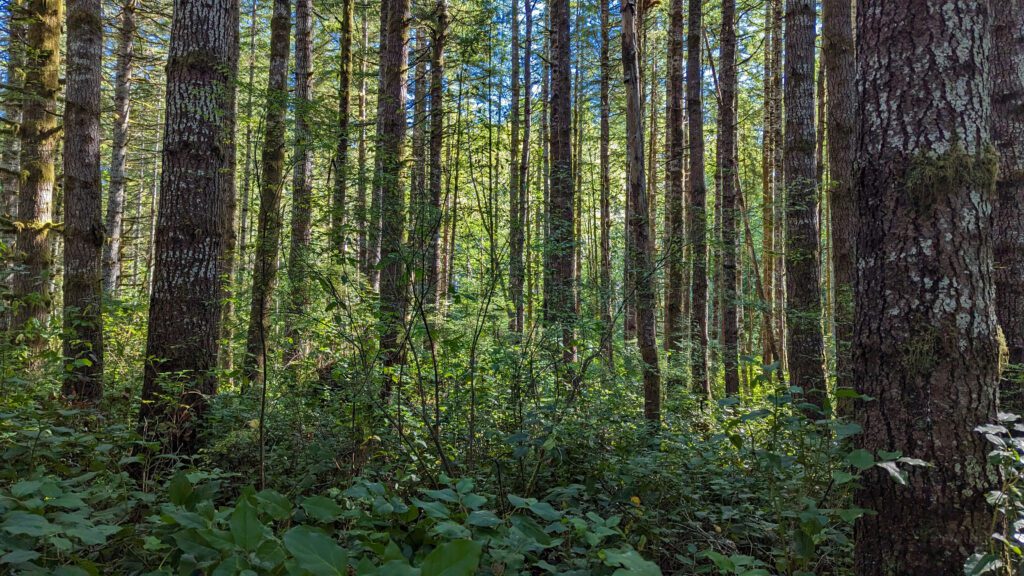
In 2023, Camp Klahanee, an 80-acre property formerly operated by Girl Scouts of Western Washington, was acquired by nonprofit Polson Park and Museum Historical Society (Polson Museum) with Forterra holding a conservation easement to protect the surrounding forestland. Funding was provided by the Washington Wildlife and Recreation Program (WWRP) Forestland Preservation account through the Washington State Recreation and Conservation Office. The three-way partnership preserves the legacy of Grays Harbor, Girl Scouts and the Polson Logging Company for generations to come. Located 20 minutes north of Hoquiam on the southern Olympic Peninsula, this site features forests, streams, trails, and meadows. The Polson Museum plans to reopen the camp for everyone to enjoy, including Grays Harbor residents, Girl Scouts and local Tribes. Plans involve historical and environmental education opportunities, as well as overnight visitor accommodations. This includes restoration of lodging facilities and a caretaker’s home, new campsites and an exhibit about the history of Girl Scouts’ connection to the property, with the potential for more collaboration in the future.
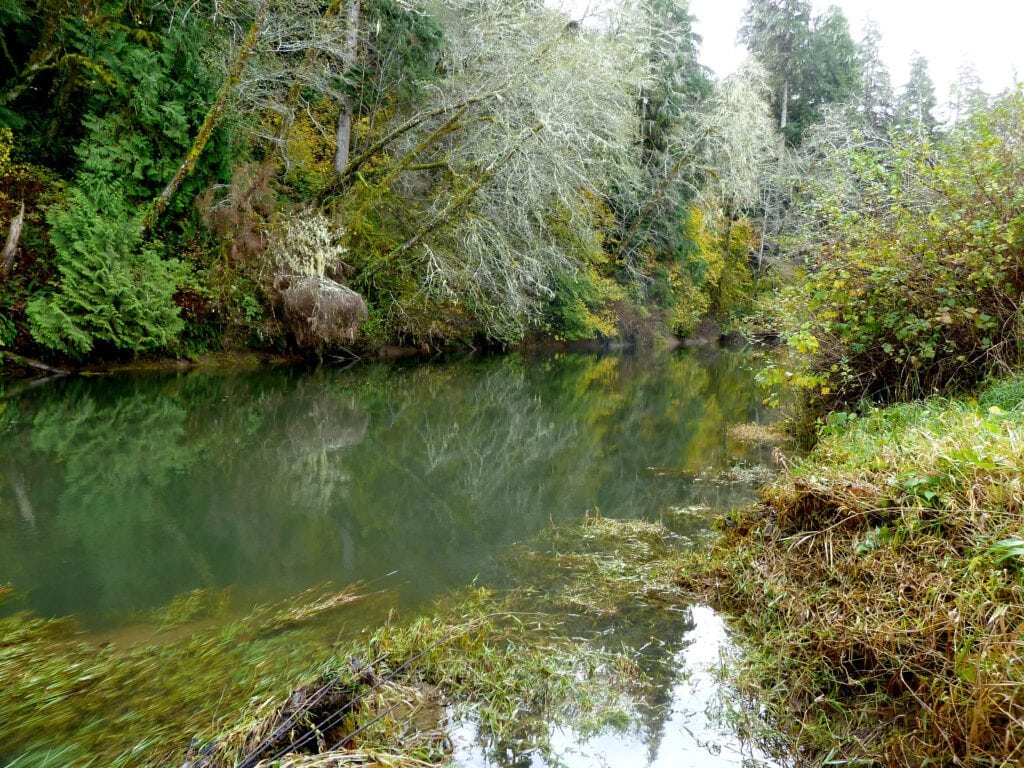
At nearly 2 million acres, the Chehalis River Basin stretches from the foothills of Mount St. Helens and Mount Rainier to the Pacific Coast. Climate change has worsened flooding within the basin and diminished habitat for aquatic life. Forterra and partners are working with landowners to enact conservation easements to aid in restoration efforts. Crews will help restore natural floodplains, plant native species, create habitats such as engineered logjams that stabilize stream banks and restore stream and alcoves to help provide salmon and other aquatic species habitat. These efforts benefit both residents and wildlife. In 2023 Forterra accomplished the following critical projects:
- 173 Rosebrook acquired. Forterra acquired this 5.5-acre property in Lewis County with funding from the Community Flood Assistance and Relocation Program, which makes funds available to relocate homes at risk of flooding. After closing, we leased the property back to the homeowner and provided them with relocation assistance funding for them to purchase a new home out of the flood zone.
- Land along the Wynoochee River near Montesano acquired. Forterra worked with a landowner to move their house out of harm’s way after extreme flooding damaged their home and limited access to their property. Forterra endeavored for three years to land an approach that was a win-win, allowing the owner to stay on their property and to permanently conserve and restore 26 acres of riparian and floodplain habitat.
- After five years of work, Forterra completed the transfer of the 28-acre Wishkah Garden property to the Chehalis Basin Land Trust for long-term stewardship. The property encompasses Wyman Creek and lies adjacent to the Wishkah River, offering a rich diversity of salmon habitat. The property is home to several species, including juvenile fall Chinook, coho and chum.
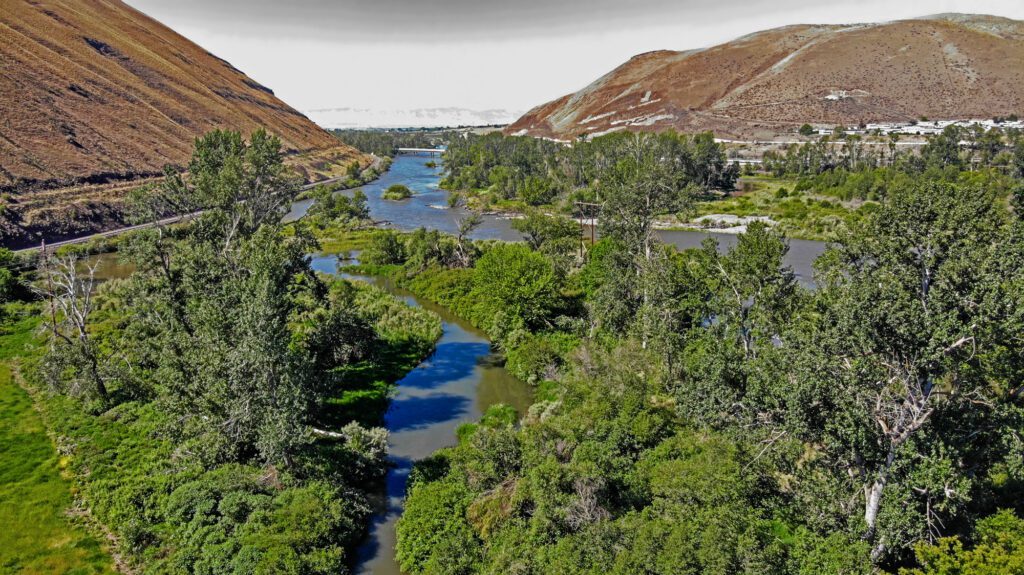
Located near Union Gap along the Yakima River, the 176-acre property known as Frog’s Home is a legendary, monumental and ancestral cultural site for Yakama Nation. It’s home to valuable salmon and fish habitat, wetland and riparian areas and established winter grounds for waterfowl. Forterra and Yakama Nation established a formal conservation partnership in 2021. In early 2022, both parties mutually agreed to pursue the purchase of Frog’s Home to conserve its significant natural and cultural resources. Yakama Nation has secured some of the land for the Frog’s Home, while Forterra has provided interim financing to take the remaining land off the market. Together, we are working to raise the funds necessary to preserve and transfer the property to the Yakama Nation. Obtaining ownership of Frog’s Home will restore lands that have been degraded by recent land use.
NW African American Museum
Supporting the NW African American Museum in Seattle and the communities of Skykomish, Roslyn and Hamilton for potential property re-development opportunities.
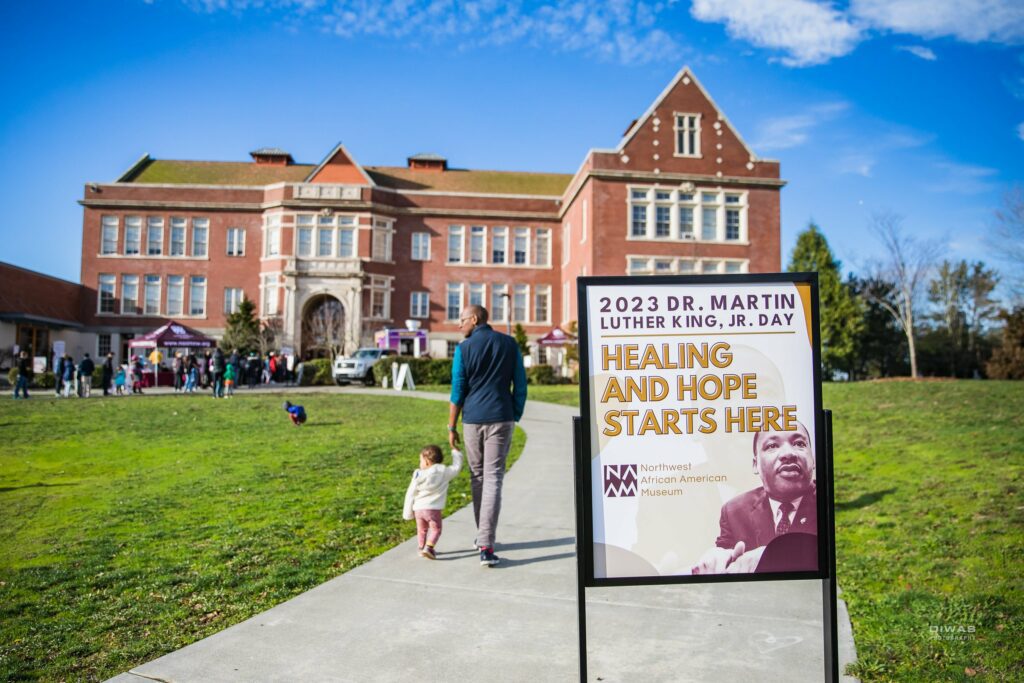
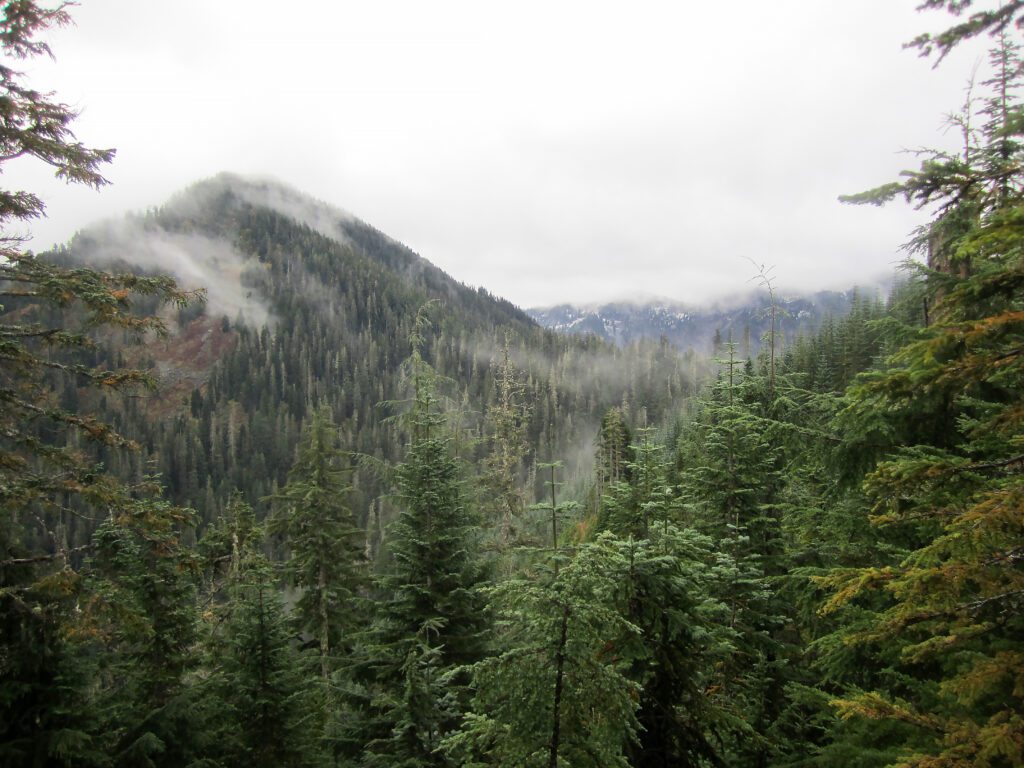
Strong Communities Funds
Negotiating purchase agreements on behalf of the Strong Communities Funds that provide terms workable for Africatown Community Land Trust in Seattle’s Central District and the Abu Bakr Islamic Center in Tukwila, while also working with a coalition of community-minded parties on the potential redevelopment of the Strong Communities Funds’ Hilltop properties in Tacoma.
MEETING SHORT-TERM NEEDS
Throughout 2023 we have helped meet vital short-term community needs through interim use agreements of the Hilltop, Wadajir in Tukwila, and Roslyn properties. This includes providing temporary facilities for the Tacoma tool library and local artists and dance groups at Hilltop, affordable short-term housing at Wadajir, and parking and recreation at Roslyn.
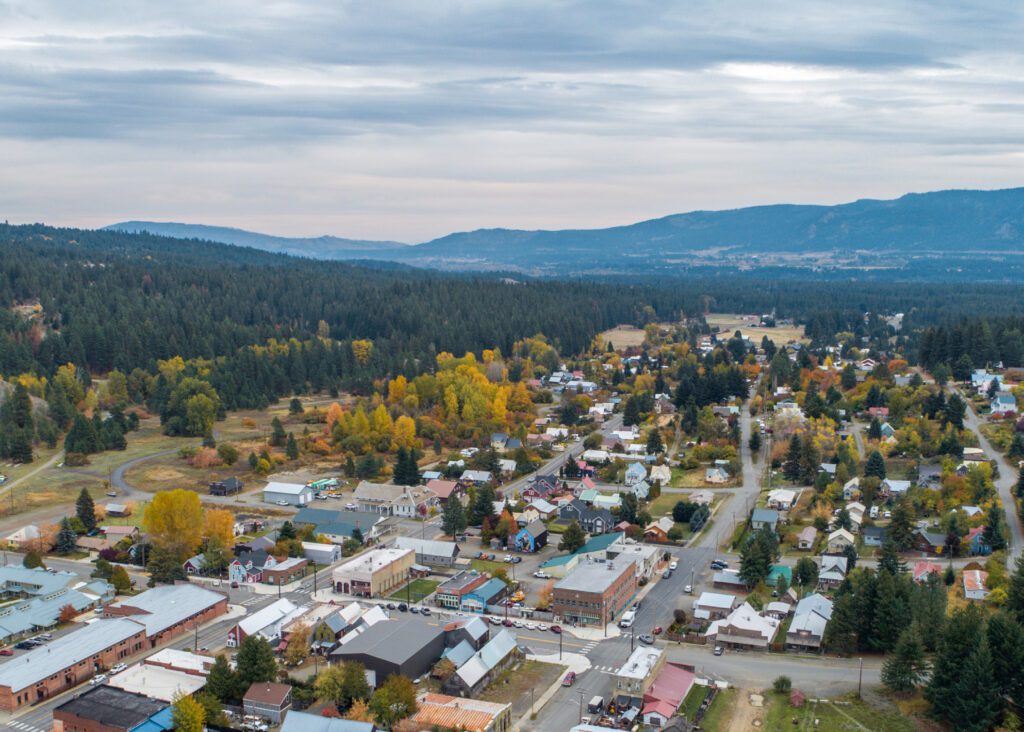
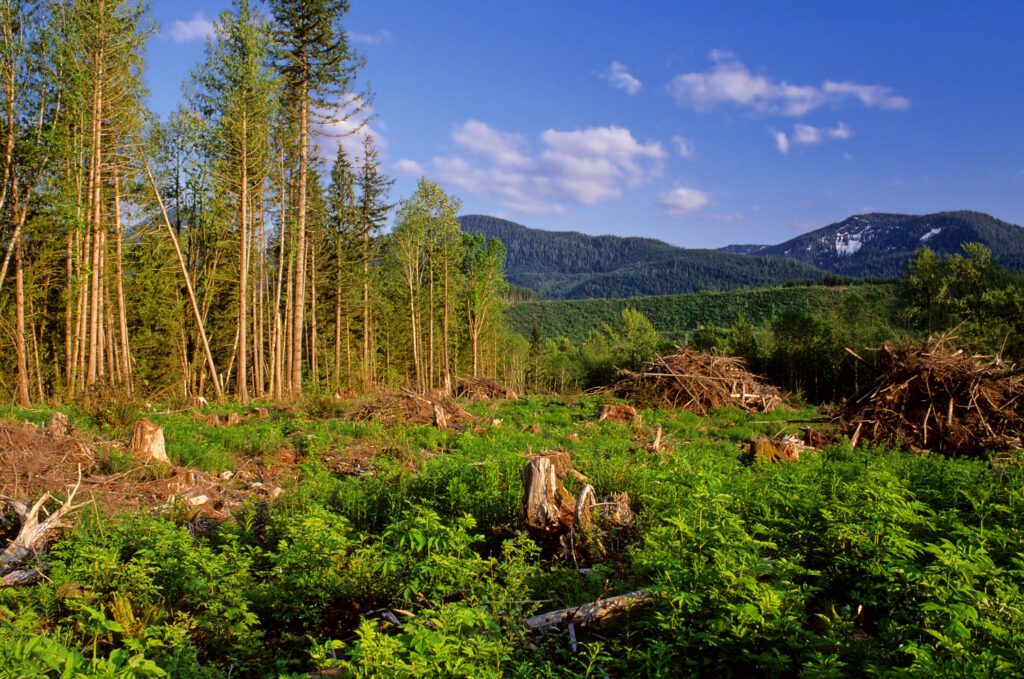
INNOVATION IN DARRINGTON
We have continued to support the town of Darrington’s efforts to recruit high tech wood manufacturing. This included raising a critical $15,000 in private philanthropy to assist the town in accessing $10 million in public grants previously raised by Forterra to create a pad-ready industrial site at the Darrington Wood Innovation Center.
CAMP KILWORTH
This year marks the beginning of a 50-year lease and partnership between Forterra and the YMCA of Greater Seattle to fulfill the potential of Camp Kilworth, a former Boy Scout camp in Federal Way. The lease will provide for restoration of historic structures, shoreline restoration and onsite management. The lease is centered on commitments to serve local communities, underserved families and the Puyallup Tribe. Through Camp Kilworth the YMCA will provide day-camp opportunities closer to home and lower-barrier to entry than overnight environmental education.
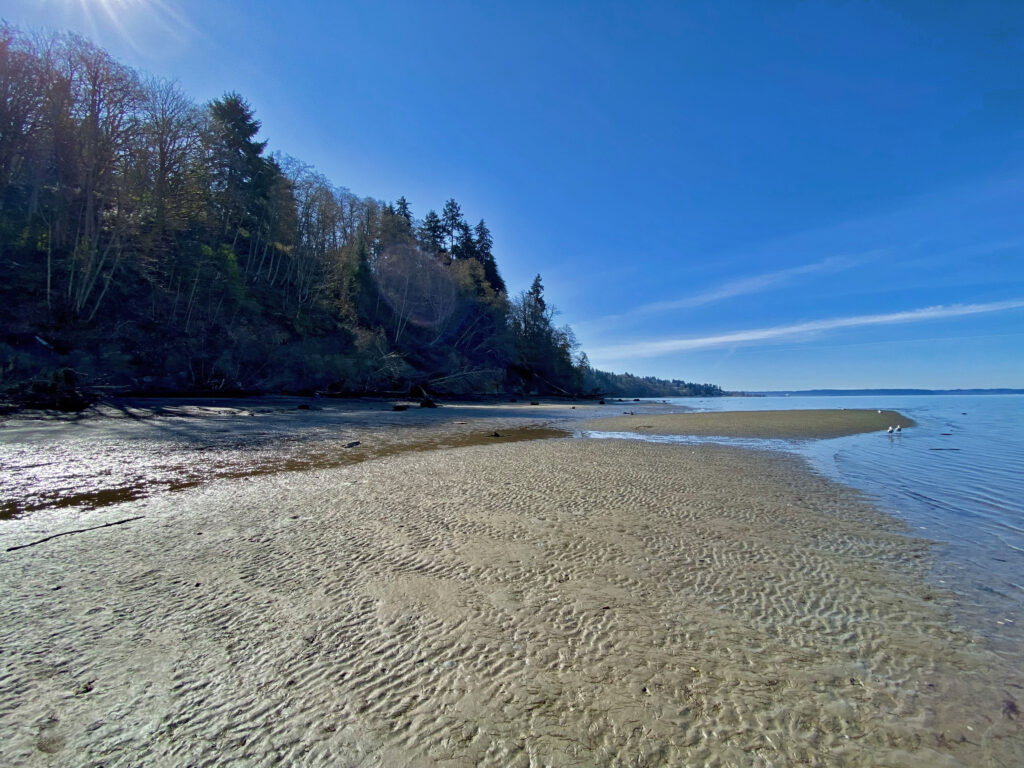
Leveraging Organizational Capacity
In 2023, Forterra’s leadership focused on ensuring financial sustainability, elevating a high-performance culture, and improving the systems, processes and technology needed to deliver on these aspirations for the long term.
Our 2023 budget was drafted on the edge of transition and could not accurately anticipate the programmatic and operational changes required of the organization as we restructured our work. Revenues dipped significantly below normal from January to August. Consequently, the Board and Executive Management worked together closely to revise our approaches as the year progressed. In the fall, our hard work began to pay off as revenues stabilized and organizational productivity picked up pace. By year-end operations and systems were well-tuned to match our updated business model, and donor contributions demonstrated that Forterra’s work continues to inspire supporters.
At the close of 2023, Forterra received $1.9 million in unrestricted donations and secured $1.5 million in financing. We also received $105,000 in charitable donations to support our interim acquisition of Frog’s Home. We secured $204,500 to launch the new Community Restoration Grant program and $45,000 for the Evergreen Restoration Program. Forterra is thankful for the financial support offered by all our sponsors. We are particularly grateful to Delta and McKinstry for their sustaining corporate support.
As a lean organization, access to technology and high efficiency systems is paramount. Throughout the year management strived to increase the speed of help from tech support, finance, legal and other system providers. We provided access to capacity-expanding resources and other collaboration and project management tools.
Throughout 2023, Forterra staff undertook significant system improvements including:
- Standardized grant and contract management and cross-departmental process improvements.
- Delivering weekly cash forecast to leadership, providing billable hours summaries for Quarterly Business Reviews (QBRs), producing quarterly Forterra and Strong Communities Fund financial reports.
- Updating Customer Relationship Management (CRM) database and mass communications systems.
As an organization that works in politically, legally and financially complex real estate and policy initiatives, internal controls and processes are vital. In 2023, management facilitated completion of a cybersecurity and infrastructure audit, financial audits, a 401(k) and an excise tax audit. Management worked closely with the Board to ensure transparency and governance engagement on strategic decisions with timely reporting on financials, grants, land transactions, and Objectives and Key Results (OKRs).
The year began with an organizational restructure, including the close-out of field work, downsizing operational roles, outsourcing short-term strategic functions better filled by expert consultants, and doubling down on Forterra’s core program area with the recruitment of a seasoned group of real estate professionals.
As Forterra has honed a lean team that is well-matched to the organization’s updated program and business models, we have sustained our investment in our people and culture. These efforts have progressed since 2018 resulting in a robust benefit package, workplace flexibility, competitive compensation, investment in professional development, organization-wide trainings, and executive coaching. This has enabled Forterra to recruit experienced, highly skilled experts with a diversity of talent and the willingness to flex responsively and proactively to organizational priorities and opportunities.
The Board launched a new People and Culture Committee to provide for board-level engagement and to serve as a thought partner to executive management. The organization saw through its commitment to cultivate a high-performance culture:
- Embracing continuous improvement through the annual employee survey.
- Providing organization-wide training on how to work with Sovereign Tribal Nations and on actions each person can take to promote a culture of Belonging, Equity, Justice, Diversity and Inclusion (BJEDI).
- Negotiating a contract with Forterra’s bargaining unit that matches the benefits and expectations provided to all employees.
Stewarding relationships
Early 2023 saw the Forterra team nurturing relationships with stakeholders, donors, and investors through crucial conversations and negotiations. Forterra engaged Tribes, elected officials, agency leaders, and funders to gather feedback and share our path ahead. By the end of the year, the benefit of consistent mass communications combined with the attention given to one-on-one engagements began to blossom in renewed relationships and re-energized program progress. Two examples:
After a year of intensive efforts to balance the needs and objectives of the Strong Communities Funds with organizations representing community interests in affordable housing and community ownership, agreements were struck providing an extended feasibility period and workable terms for the respective parties. Forterra is committed to working with the Strong Communities Funds and these stakeholders to achieve the original aspirations to transfer these properties for community-focused development and ownership.
In October, CEO Michelle Connor and Sr. Managing Director for Community Development India Clark met with the Makah Tribe where we learned and shared interests. Chairman TJ Greene reiterated the Tribe’s support of Forterra and appreciation of our transfer of property along Lake Ozette to the Tribe in 2014. We will look for opportunities to work together in the years ahead.
Finally, we got outside, had fun and created shared experiences. A highlight was the Duwamish Hill Scavenger Hunt – a family outing Forterra hosted to explore the nooks and crannies of this unique urban and cultural preserve on a treasure hunt that featured the site’s Puget Sound Salish Cultural Garden. We enthusiastically committed to more outings to discover nature and enhance our well-being in 2024.
Check out Forterra’s audited financial statement for FY2023.

